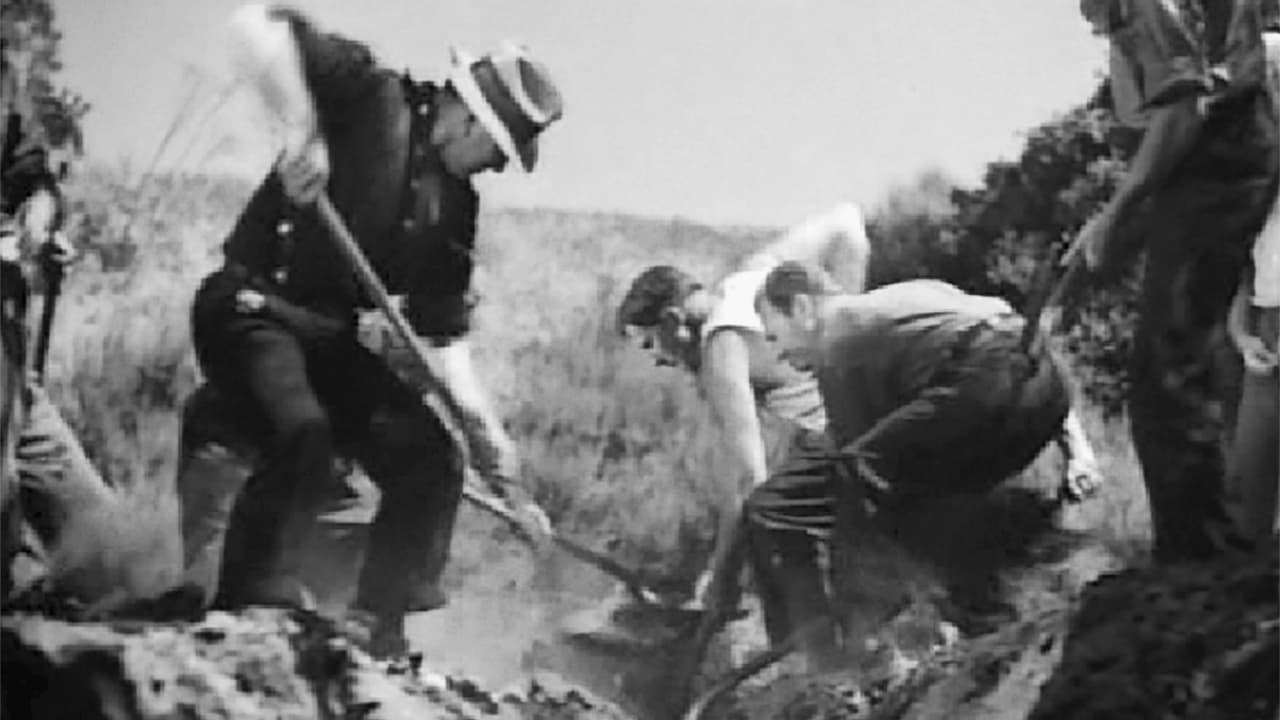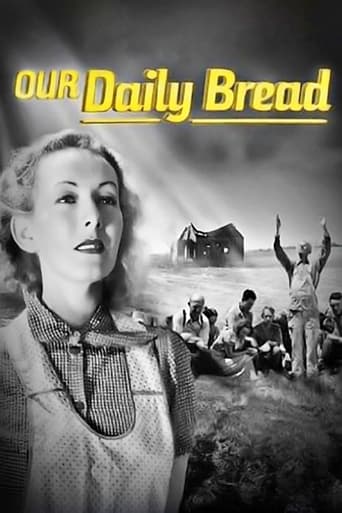

There is always a solution to every problem perhaps more than one and this problem and its solution moves and entertains. Who hasn't been desperate or down and out and worried about giving up and your luck changes for the better? Here we see that it is possible and to not give up hope. To me Hope is the central theme in this movie. The people work against all odds which is why hope not only works and sustains but delivers if we persevere. These people do just that. We can never really starve because we all have access to...
... View MoreCynics may, and will, find a lot to dislike; conversely, idealists will find a lot to like.Another commenter said "Our Daily Bread" gets a lot of interpretations, and that is very definitely correct.The one I like is this: People in voluntary co-operation, working together toward a common goal, in this case, survival, can accomplish a lot, especially if there is some intelligence used in both finding the goal and finding the means toward it.Unfortunately a lot of luck is needed, too, and the people here got a bit of it at the start.Also needed is a very high threshold of frustration, and patience, and a reluctance to place blame.Father Flanagan, most famous for Boys Town, started his mission of helping financially deprived people by acquiring an abandoned hotel in Omaha. He opened it to anyone in need who would also provide some ability or effort toward restoring the building.It's an idea whose time might be here again, as we are in either a depression or a very severe recession, and thousands of people are losing their homes.The John Sims character in "Our Daily Bread" begins with a similar, if not identical, premise, and disparate, but desperate, people pitch in with their skills and talents or perhaps just their desperate desire.The commenter who said the women had little to do should re-watch "Our Daily Bread" and pay closer attention to the last scene, which someone else called, rightly, "exhilarating." Exhilarating: That's the word for "Our Daily Bread," a must-see.
... View MoreKing Vidor's "The Crowd" (1928) ended hopefully: James Murray and Eleanor Boardman (then playing John and Mary Sims) conquered the industrialized, impersonal City, with a new job and child replacing previous losses. But, the Sims' luck is, according to this film, cut short by the Great Depression. Tom Keene and Karen Morley (now playing John and Mary Sims) are sans job and money. With nothing to lose, the couple moves out to farm some country land owned by Ms. Morley's uncle. Mr. Keene organizes the locals into a communal society; but, nature and a woman threaten the Sims' success.Although the lead characters resemble their namesakes from director Vidor's "The Crowd"; their tale, proclaimed as "Inspired by Headlines of Today", is derived from a "Reader's Digest" story. The characters do not share factual similarities with the original John and Mary Sims; for example, no reference is made to their children.Vidor directed, and Keene acted, the "John" role inappropriately. Several of the supporting players are also unsuitable. Morley's Garbo-like "Mary" is a bright spot among the performances, though. Barbara Pepper answers "Garbo" with a Harlow-like "Sally". It's the closest you'll get to having Greta Garbo and Jean Harlow in the same film. However, the attempted "city girl" temptation of Keene, by Ms. Pepper, is not convincing. Interestingly, Pepper returned to country life in the 1960s, as the wife of "Fred Ziffel", on TV's "Green Acres".The irrigating ending is unexpectedly exhilarating. ******* Our Daily Bread (1934) King Vidor ~ Karen Morley, Tom Keene, Barbara Pepper
... View MoreHeard my grandparents speak about the depression and how hard it was to live in any big city trying to find work and food. This film clearly shows in great detail all the difficulties people experienced trying to find work and hold a job and turned their ambitions into the rich farmland of the Mid-West. King Vidor showed the poor conditions that people had to live in and how the weather seemed to work against them with droughts and dust storms. The scene I liked the most was when all the men decided to do something about getting water for their corn crops and working day and night to get their corn fields filled with water. Some of the people jumped and rolled in the dirt, mud and went simply crazy at the sight of water flowing on their land. This was a great realistic film about the depression days years ago.
... View More